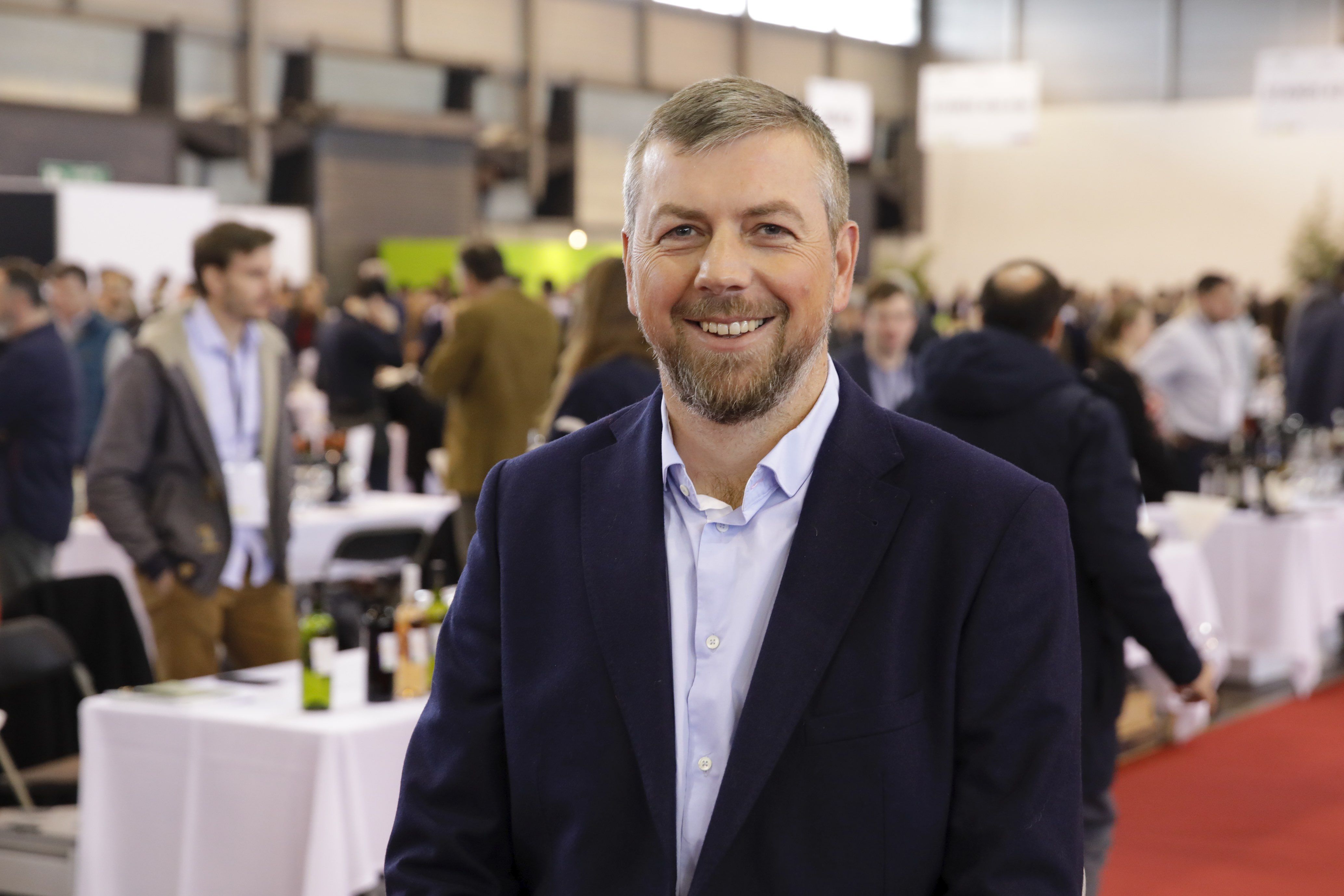Millesime Bio, which takes place between January 27-29, will be a chance for the world’s top organic producers to show their wine to the international market. As a producer himself, Nicolas Richarme of SudVinBio, says there is much for them to look forward to.
For many in the global wine market, Millesime Bio, has always been their highlight of the year. The chance for them to travel and taste the best organic wines being made not only in France, but around the world. It was their little secret, operating quietly under the radar to other more high profile, mainstream events such as ProWein. But in recent years the profile, the significance and the spotlight on Millesime Bio has grown, in pace with the increased interest in and demand for better quality organic, biodynamic and minimum intervention wines.
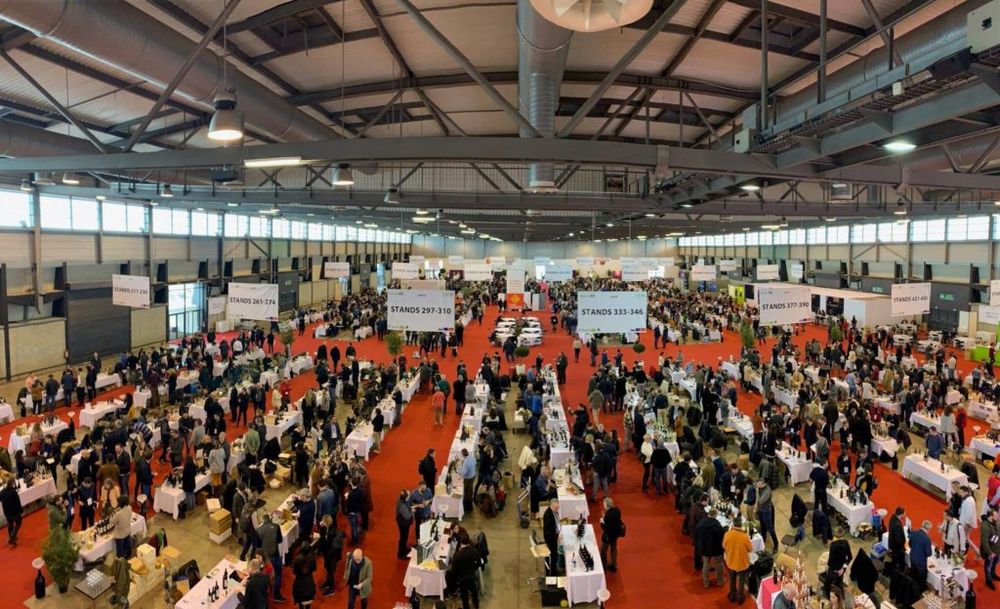
The scale of Millesime Bio is a surprise for those attending for the first time
The show has grown in size as a result, but has still kept to its end of January position in the global wine calendar as Montpellier once again becomes the centre of the international wine trade. But how have those responsible for organising and planning the show seen the changes in organic wine and how have they responded? To help we turned to Nicolas Richarme, president of SudVinBio, the interprofessional body for organic and biodynamic producers, who also runs his own winery Chateau du Bastet in Occitanie.
How are the plans for Millesime Bio coming together – can you pick out the highlights from this year show?
We are very excited about the 2020 edition of Millésime Bio. As the global demand for organic drinks is intensifying, we have refreshed our exhibition space and opened a fifth hall to allow an additional 100 exhibitors to join in. With 1,300 exhibitors present, the 2020 event is on track to be the biggest to date.
A programme of masterclasses and conferences, hosted by leading figures of the organic world, will take place over the three days. These will include the presentation of the full full results of a Millésime Bio study, conducted by IWSR, on organic wine markets in France and Europe and a masterclass on Austrian organic wines presented by Jamie Goode. There will also be sessions on ethical principles of Pays d’Oc IGP organic wines, organic wine and chocolate pairing, lesser-known grape varieties of Pays d’Oc IGP organic wines and a focus on organic beers.
Are you attracting more exhibitors from more countries?
We have 1,300 exhibitors in 2020 (against 1,200 in 2019). Three-quarters of our exhibitors are French producers and 25% come from Europe and beyond. We have exhibitors from 21 different countries, which is the same as 2019.
Are you attracting more buyers from outside France and where is the interest and demand coming from?
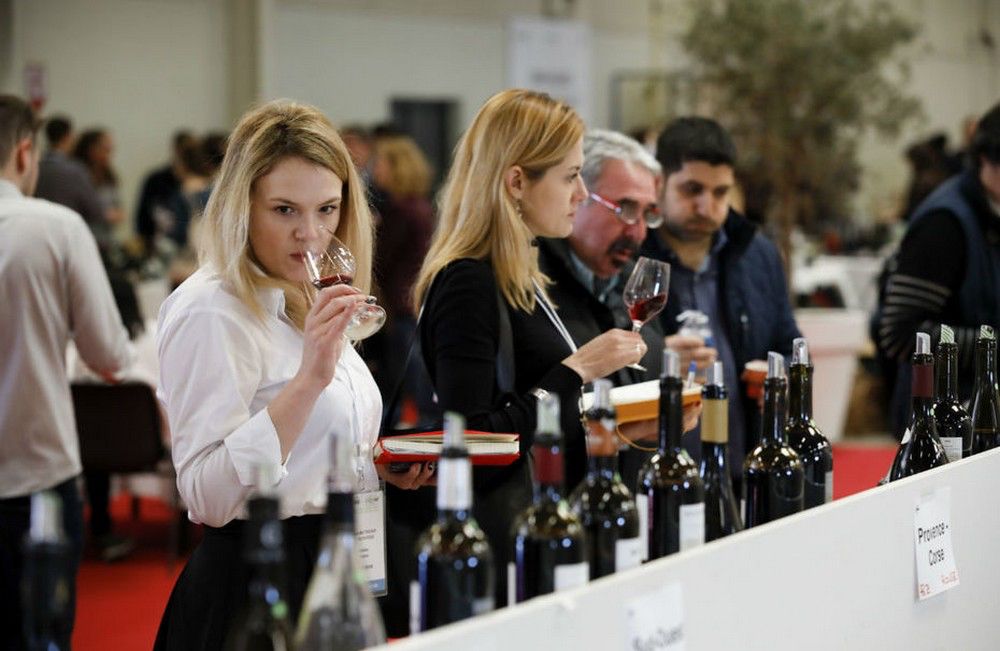
Millesime Bio has seen a big uplift in visitors in the last few years
We expect 7,000 visitors at Millésime Bio 2020 (+10% vs 2019). We welcomed visitors from 52 countries last year and foreign visitors accounted for 22% of the total footfall. Outside of France our top 5 visiting nationalities in 2019 were Belgium, Germany, Switzerland, the Netherland and the US. We have noticed an increase in registration of visitors from the US for 2020.
The interest in organic wines is increasing year on year, particularly so in 2019. Do you have any latest figures on size of the market and the opportunities?
Global organic wine consumption is on track to hit almost 1 billion bottles a year by 2023, more than doubling over the course of a decade, as consumers around the world embrace more environmentally-friendly products.
A major study into organic wine trends in key global markets, commissioned by SudVinBio and conducted by drinks research group IWSR, for Millésime Bio, finds that organic wine consumption is forecast to increase to 976 million bottles in 2023, up 34% from 729m bottles at the end of 2018, and more than double the 441m bottles in 2013. The sharp increase contrasts with the steady decline of wine consumption globally and reflects the ongoing shift to better quality wines produced to higher standards of sustainability.
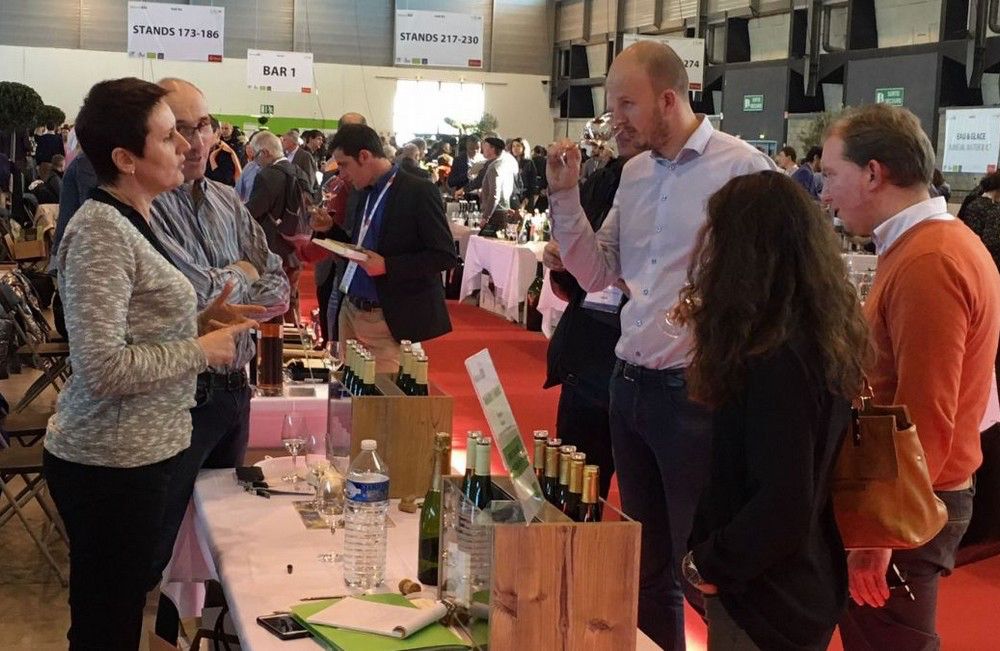
The chance to taste and meet producers from all the world is a big plus for Millesime Bio
Organic wine is expected to account for 3.5% of global wine consumption in 2023, up from 2.6% in 2018 and just 1.5% in 2013. Within those figures, consumption of organic sparkling wine in the five key markets selected for the study (France, Italy, Spain, Germany and the US) rose at an average of 19.1% a year between 2013 and 2018.
This trend is set to continue as the study forecasts an average increase in organic sparkling wine consumption of 8.2% a year in those markets for the period 2018 to 2023. The organic wine market was worth €3.3bn in the top five consuming countries at the end of last year.
What do you think is driving those changes and demand for organic wines?
The increasing levels of consumer awareness and the realisation that individual purchasing decisions impact the environment.
The desire to choose products (wines or others), which are ‘cleaner’, healthier and better for them as well as the planet. Recent scandals and reports on the use of pesticides and chemicals have also helped the move to organics as well.
What new innovations are you introducing to this year’s fair?
New digital solutions have been added for the 2020 fair, with tablets available for exhibitors and a new interactive digital platform created to provide greater functionality for all attendees. The platform will allow exhibitors and visitors to set up appointments, exchange information but also navigate the floorplan easily thanks to a geolocation feature.
You can check out the full list of masterclasses and conferences taking place at the event.
You are also running the Annual Challenge tasting event. Can you tell us about that and what impact it has for the wines that win medals and awards?
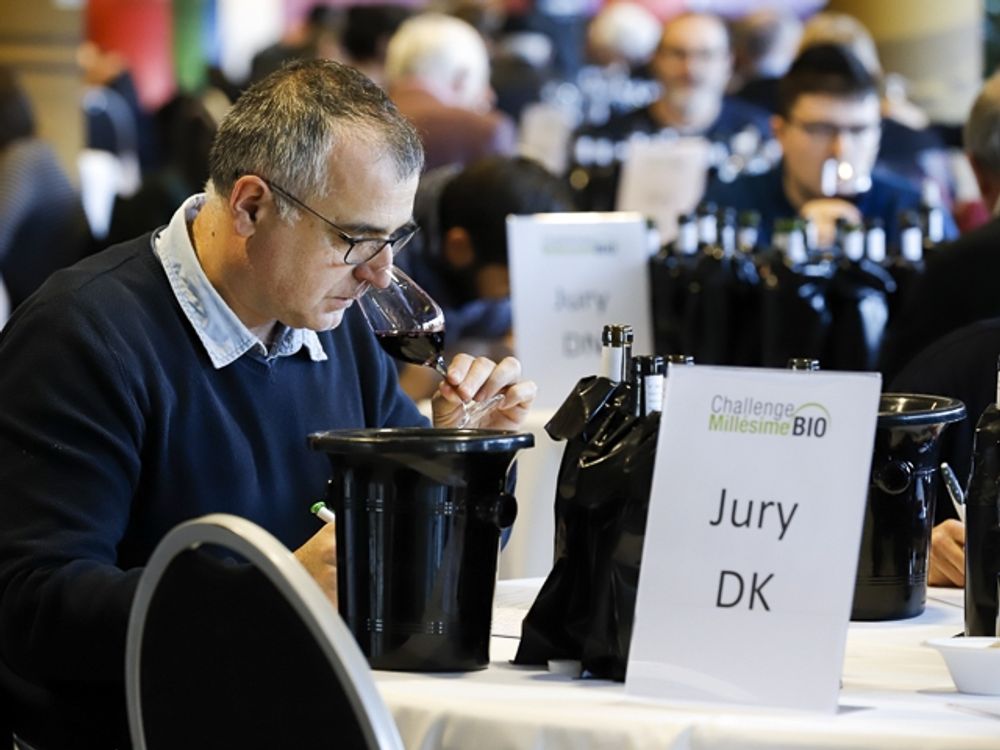
Millesime Challenge is now into its 13th year
We just hosted the 13th edition of the annual Challenge Millésime Bio Contest this week. It is the largest international organic wine competition and it gathers a panel of expert judges who taste over 1,600 wines from 15 countries. This year the event was chaired by Jean-Luc Rabanel, chef of the Two-Michelin-starred restaurant l’Atelier in Arles, France and founder of the ‘Greenstronomie’ movement.
Winning wines will be able to promote their medals at point of sale, gaining a real competitive advantage. Producers can use the ‘Challenge Millésime Bio’ accolade to stand out from the crowd and reinforce their organic winemaking credentials. Medal winners will be promoted across the three days of the fair from the Bar Challenge (hall B3). On Monday 27 January 2020 the annual Millésime Bio festive evening hosted by Sudvinbio will take place at the Opéra Comédie in Montpellier and showcase a selection of gold-awarded wines from the Challenge Millésime Bio Contest.
What trends and opportunities do you still see for organic wines and how they can continue to grow in the market?
In addition to the notable increase in consumption for sparkling wines (19% in key markets between 2013 and 2018), we also note a general trend for no sulphite wines.
Overall, consumer demand is the key driver. More and more consumers around the world are choosing organic wines as they reject the use of pesticides and other unnatural products that damage the environment and can enter the food chain. This trend will only increase as large and small vignerons switch to more sustainable winemaking, and retailers stock a larger range of organic wines to meet rising consumer demand.
Millésime Bio’s research found that France will become the largest consumer of organic wine by 2023, accounting for one in five bottles enjoyed, leapfrogging Germany which will take 17.6% of consumption. The US will move into third place overtaking the UK which will represent 9.3% of organic wine consumed, or some 91 million bottles.
This must be having an impact in the number of organic vineyards there now are?
To keep up with soaring demand, conversion to organic viticulture is taking hold in all leading wine-producing countries. By 2023, Spain is forecast to have 160,000 hectares of organic vineyards, three times the coverage of 2013. France will consolidate its position with the second-largest area dedicated to organic vineyards, at around 115,000 hectares. Italy, the largest volume producer and exporter, will increase organic vineyard coverage more modestly to over 96,000 hectares.
- To find our more about Millesime Bio then go to its main website here.
